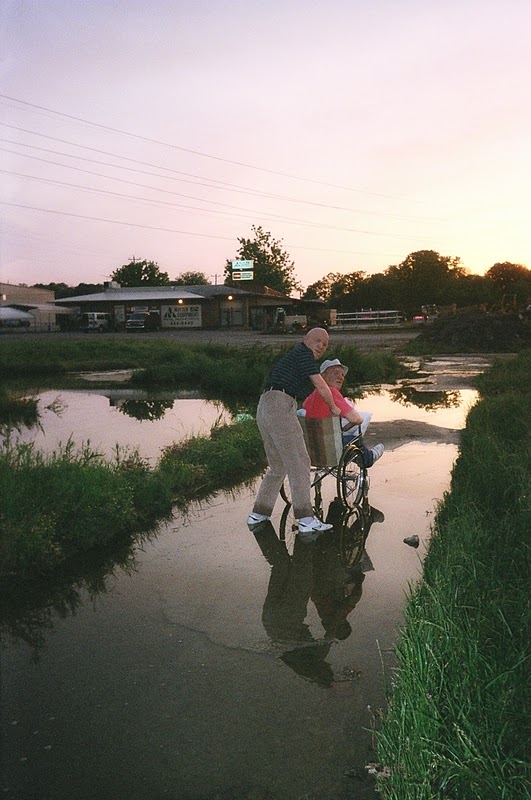What Harmony Korine Has Got to Do With Martin Scorsese

There’s a certain level of gratuitousness in the way that Martin Scorsese repeats images of Hollywood violence so that, both by his stories and in the direction, viewers find themselves at the precipice of insanity or capable of great wrong and violence they never knew before. There’s a similar insistence in Harmony Korine’s films—notably in his latest, Trashhumpers, which screened this morning in an empty theater (talk about the full effect). As with Scorsese, the viewer experiences the same effect on merciless repeat, but Korine’s is the suspended dread that dull, festering malevolence will entirely disillusion ruinous suburban mediocrity. The film follows three Hobbesian Jack Smith characters, derelicts who derive pleasure, primarily sexual, by acting out an archaeology of immoral and inhuman acts—not that they’d put it that way, or say anything besides grunt or sing a troubling jingle about “going out and getting it.”
The three unnamed characters, two male characters and one female, all of them pretty pansexual and played by the director and members of Korine’s own family, have their faces covered with papier-mâché gunk that makes them look like bank robbers with stockings on their heads, and a deeply depressing parody of old age. They populate the earth like an undead Rosencrantz and Guildenstern, with no accounting for their existence, as the film presents a string of episodes in which they smash things. The points in the film at which the three pleasure themselves by grinding against trees or other objects are comforting in comparison, because at least no bodies are being threatened. The fear that they will castrate themselves during these sessions fades. A rotating cast of characters join them, all of them unsavory, although they at least seem to have some anecdotes to tell, which our protagonists do not. The most distressing is an overweight young child in a suit who eagerly learns how to suffocate a doll and chop it with an ax.
One supplemental character is a stand-up comedian whose jokes amount to “two gay guys soaped each other down and had sex, to the offense of someone else,” in more lewd language. Our three heroes screech and grunt, and we find it funny too, because the rhetoric is so lazy and because his understanding of how a joke should be told is so far off. There’s a dumbness to these lines that finds an eerie analogue in Korine’s images of human bodies, and the structures we build around flesh and bones to make us a civilization. In one long passage, a man discusses what would happen if he didn’t have a mouth (“The end of dandruff…. and beards… No need for tables, just eat off your stump”), and we watch in looming dread that someone will just ax him, even if we don’t particularly know or like him.
I remember Korine speaking about the film almost a year ago, as he was preparing to send it to festivals. He said that he’d originally wanted to distribute Trashhumpers anonymously, as if it were a snuff film. He decided that the film was too recognizably his. Indeed there’s a signature lo-fi style, but Korine might have gotten away with it, and not just because the film is shot handheld. Trashhumpers is of a particularly American world, and belongs to the vocabulary of torture porn, with clear origins in the narcissistic sadism of Abu Ghraib, the morbid vogue for high-tech disaster movies, and the promise of infinite sexual gratification offered by the Internet. Throughout Trashhumpers, we have conflicted feelings about who to hate and who to hope doesn’t get violated, waiting for narrative and for redemption. The film, like others from Korine’s past, sees a fascination with babies, as tropes of possibility and innocence, and as a way to give a reason to live to otherwise purposeless humans. Our future comes dragged, by bicycle, (but in doll form, thankfully) through the dirt.






